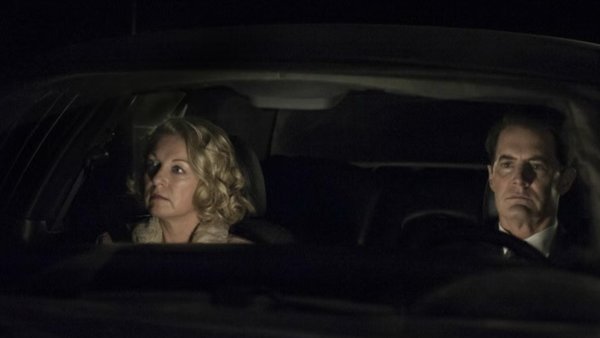5 Years Later Twin Peaks The Return Ending Finally Makes Sense

Lynch's oeuvre works on a subconscious level.
Through the moods only he can create, it is not difficult to intuit the story as it plays out, but then, like in a dream, articulating the meaning becomes more difficult with each passing second after it fades. To delve into the first person here - using the third is pointless when there is no objective truth - when I first watched the finale, I felt awful. It wasn't so much a bone-deep reaction but a molecular shattering. What's most impressive about the feeling Lynch elicited is that he did so, as ever, through mundane imagery. This irreconcilable version of Cooper isn't seen gorily ripping through victims; indeed, Mr. C feels like an overtly fictional genre villain in deliberate contrast to Richard and his awful, suppressed secrets. The sheer desolation Lynch captures - the empty roads, the empty RR diner, the blackness, the silence - is utterly antithetical to the whimsy of season one. There's a striking, "real" quality to this world. This isn't in support of any meta narrative, but another reminder that we are intentionally being confronted with something stark here.
Angelo Badalamenti's haunting Dark Space Low captures the real meaning behind the finale. It is the aural translation of despair. Cooper, Richard, whoever the man is, is capable of something we never thought possible.
The very idea of accepting that Dale Cooper or some part of him is a monster is so unthinkable that we, the viewer, cannot sanction the reality - but isn't that, to quote Ray Monroe, the "key to all this"? Is mentioning that Cooper gave away the best part of himself to create the improved version of the Dougie Jones tulpa another form of denial? Would Dale Cooper or any part of him have done this had he never encountered the Lodge? Does asking these questions power the ceiling fan?
Laura died because the truth of her life was too much for the townsfolk to sanction. They looked away. In the devastating conclusion of Twin Peaks, the hubristic Dale Cooper, who meddled with forces beyond his understanding, is unable to look away from himself.
He is, literally, always in the rearview.